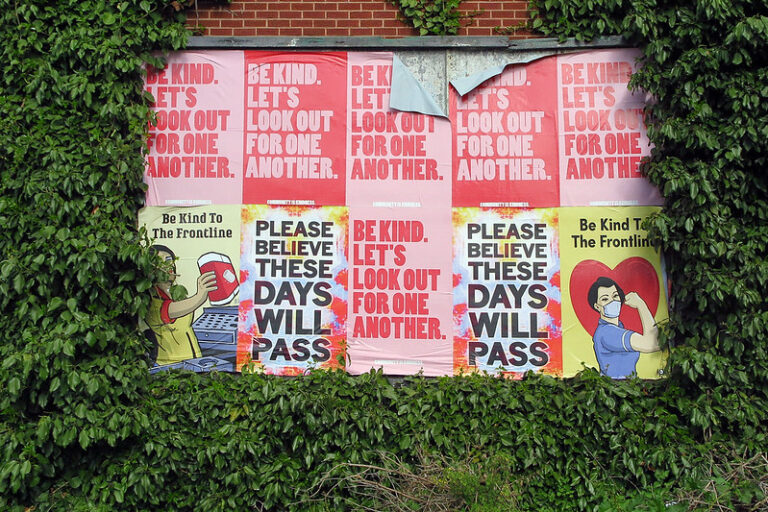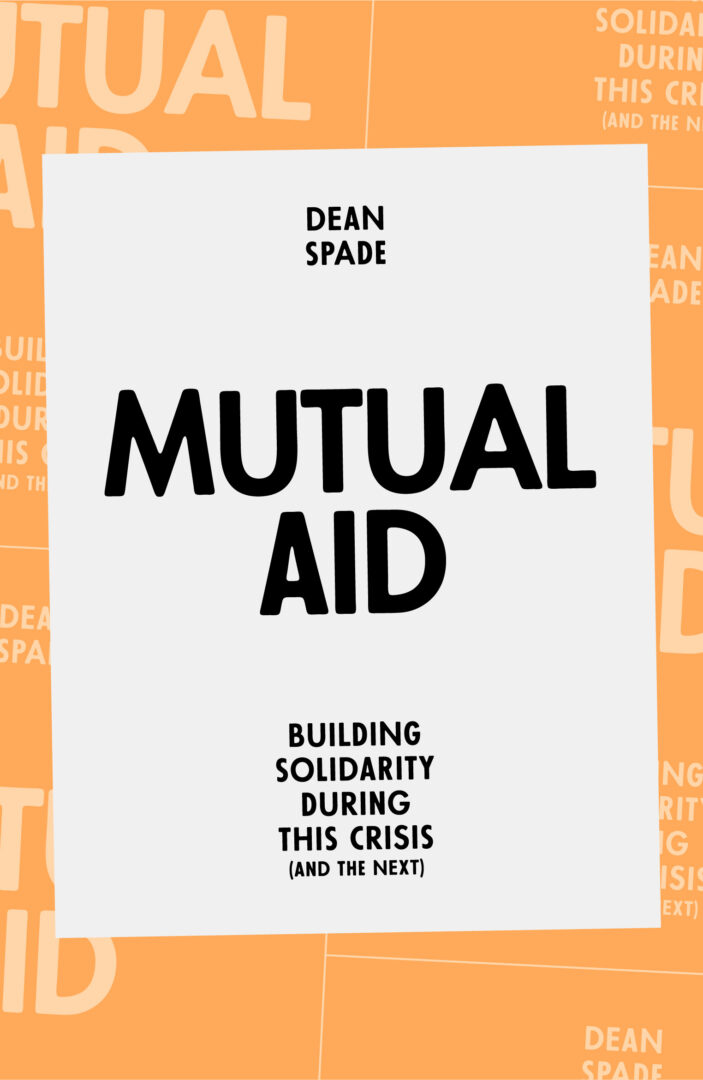Masks for Crips was a mutual aid project that centered the Chicago disability community. Alison Kopit and Chun-shan (Sandie) Yi began the project at the onset of the COVID-19 pandemic, and it ran from March 2020 through July 2020. Early in the pandemic, when personal protective equipment (PPE) was difficult to come by and the state was not caring for those most impacted by the pandemic—disabled people, essential workers, people living in congregate facilities, and unhoused people, to name a few—the project provided homemade masks to disabled people and their care teams in the Chicagoland area. Masks for Crips addressed an infrastructural gap and disability community need in an urgent way, and provided information about how to use and care for masks, as well as best practices for reducing risk surrounding COVID-19. The project was born through text message-based conversation in March 2020 as Alison and Sandie held space for each other by sending memes, texts, and support informally. From those moments of connection, they proceeded to expand outward and develop a mutual aid project that delivered about 300 masks, start to finish. The project brought together delivery and mask-making volunteers while serving as a means of connection and an expression of disabled care during an isolating time.
Keyword: mutual aid
Review of Trans Care by Hil Malatino (University of Minnesota Press)
Hil Malatino’s short book Trans Care critiques the heteronormativity of dominant theorizations of care. By taking trans lives seriously, he shows how trans care webs form the basis of trans survival. Malatino deftly weaves together the insights of trans studies and activism with care feminism to explore the archive, cultural production, healthcare, and politics. He broadens feminist and left perspectives on care and brings care from the margins into the center of trans studies. Trans Care is a plea for stronger, more egalitarian, and solidaristic relations of care.
Feelings, Fascism, and Futures
The COVID-19 pandemic has exposed some of the most glaring inequalities within nations and across the globe. While the disruption caused by the pandemic has given rise to hopes for a cultural reset to address these structures of inequality—captured compellingly by Arundhati Roy in her vision of the pandemic as a portal—the sediments of inequality have proven hard to erode. In this contribution, I explore this regressive impulse by honing in on the affect of restraint. While restraint is not ordinarily characterized as such, in the pandemic it has been a defining feature of our lives. However, it was not afforded equally. I begin by showing how restraint has become racialized, serving as a political tool to suppress protests, notably Black Lives Matter. I then move to show how globally, too, there has been an imbalance in who is—and what countries are—expected to practice nonintervention, linking both domestic and international uses of restraint to these preexisting structures of inequality. I end by proffering a vision for how, despite all these obstacles, the pandemic has also offered ways to bypass the state and form new social formations.
Review of Mutual Aid: Building Solidarity During This Crisis (and the Next) by Dean Spade (Verso Books)
Dean Spade’s Mutual Aid: Building Solidarity During This Crisis (and the Next) is an accessible guidebook meant to inspire local organizing efforts based in mutual care, generosity, and dependency. By reflecting on contemporary contexts in which people are increasingly individualized and rendered dependent on inadequate government support systems, Mutual Aid demonstrates that sharing and cohesion are radical steps toward liberation. On this basis, we are reminded that contemporary social crises can usher in the normalization of interdependent community engagement, inspiring lasting social movements built upon mutual aid.



